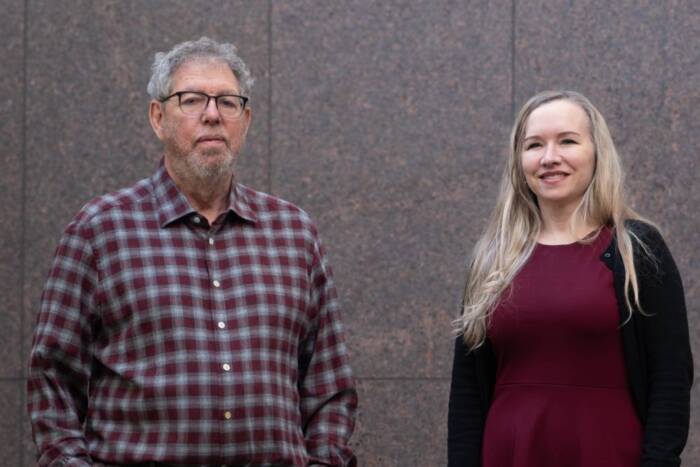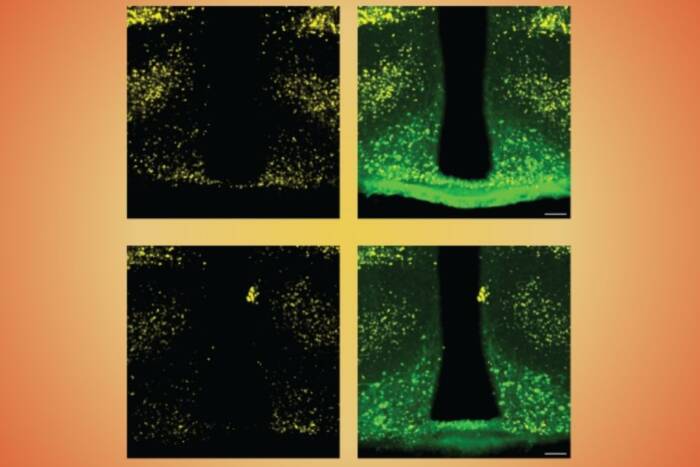Three Rockefeller scientists elected AAAS fellows
Three Rockefeller University scientists have been elected fellows of the American Association for the Advancement of Science (AAAS), the world’s largest general scientific society. The election of Arleen Auerbach, Cori Bargmann and Nathaniel Heintz was announced in the AAAS News and Notes section of the November 24 issue of Science.
AAAS fellows are chosen from among the association’s members for scientifically or socially distinguished contributions in specific fields ranging from biology, chemistry and medical sciences to linguistics, information technology and economics. “Arleen, Cori and Nat join 16 other Rockefeller University faculty members who have been elected to AAAS fellowship by their peers,” says Paul Nurse, the university’s president. “Election to the AAAS recognizes these innovative scientists for their many contributions to their fields and to science in general, and it is a reflection of the broad respect that these researchers have received from their colleagues.”
Arleen Auerbach, associate professor in the Laboratory of Human Genetics and Hematology, was elected within the AAAS section on medical sciences for identification of new genes and development of diagnosis and treatment of Fanconi anemia, an inherited disease characterized by skeletal anomalies, bone marrow failure and susceptibility to tumors and leukemias, among other symptoms. Auerbach discovered a cellular marker for the syndrome through patients’ hypersensitivity to a DNA-damaging agent, thereby facilitating prenatal and postnatal diagnosis. Insights from this research have led to the use of umbilical cord blood transplantation as an alternative to bone marrow transplantation in the treatment of Fanconi anemia and other blood disorders.
Cori Bargmann, Torsten N. Wiesel Professor and head of the Laboratory of Neural Circuits and Behavior, is a new fellow within the section on neuroscience, chosen for contributions to the field of behavioral neuroscience. Bargmann’s research resulted in the identification of the first molecular odorant receptor genes in the model organism C. elegans as well as the genetically regulated mechanism by which the C. elegans roundworm engages in social or solitary feeding. Her research into signaling pathways confirmed that artificial activation of individual sensory neurons, each of which is primarily dedicated to a single behavioral task such as attraction or repulsion, can generate their encoded behaviors in response to novel stimuli. Bargmann also is an investigator at the Howard Hughes Medical Institute.
Nathaniel Heintz, the James and Marilyn Simons Professor and head of the Laboratory of Molecular Biology, was elected within the section on neuroscience for contributions to molecular neuroscience. The Heintz laboratory has identified a variety of genes expressed in the mammalian central nervous system, responsible for its development, function and dysfunction. The lab also developed a large-scale screen method involving the modification of bacterial artificial chromosomes to allow efficient analysis of patterns of gene expression, subcellular localization of their encoded gene products and mapping of neuronal projection patterns. The positional cloning of lurcher, a mouse neurological mutation, led to insights into the neurodegenerative function of the mammalian prototoxin gene Lynx1. Heintz also is an investigator at HHMI.
The AAAS, founded in 1848, is an international organization that includes 262 affiliated societies and academies of science, and promotes initiatives in science policy and education. The association named 449 new fellows this year. They will be honored at the Fellows Forum during the 2007 AAAS annual meeting in San Francisco on February 17.


